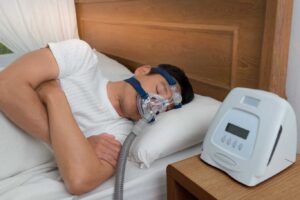SLEEP STUDY TEST IN DELHI
Are you looking for Sleep study test in Delhi .Sleeping is very important for our health we all need proper sleep a deep sleep and everyone needs sleep because it can injure our health and this mistake make human very weak in now days everyone is busy in their life and they should sleep CONSULT WITH A SLEEP COACH

In now a days we all are suffering and we all want to know about how much important is sleep is ,
About the consultation , Absolutely free.
Now I will suggest you all the suggestion by our experts , And in now days these clinic is open from 24 hours for all of you .
You all can do phone there and the phone number is provided in our form , We will first contact you to confirm a consolation time that works for you.
THESE ARE THE REASONS WHY WE SUFFERING AND I HAVE ALSO ANSWER ALL THESE QUESTION.
Day time sleepiness morning headaches loud snoring difficulty in breathing while sleeping and restlessness are the major symptoms of sleep apnea . it is the most common sleep disorders and if and these things also hyper and snoring in many bad ways.
HOW CAN I BE SURE HOW TO DIAGNOSE.
Home sleep test is the easiest way to diagnose sleep apnea line air home sleep testing device you can easily take the test and get your diagnosis report within 24 – 48 hours the test costs INR 2099/- only.
WHAT IF MY DIAGNOSIS IS POSITIVE.
Once you get CPAP trail within couple of days you will feel energetic vitality as you go about your day if you continue the CPAP therapy increased focus energy and vitality will become your characteristics.
Now I will tell you best clinics for you which can help you to recover in this situation.
Our Supportive partners
- respimeds.com
- Sleep apnea India
- Morpheus lung and sleep clinic
- Sleep cure solutions
- ASRA SLEEP LAB
- Shantam chest clinic and sleep disorder centre
- AVISS HEALTH
- CENTAS SLEEP LAB
- DR HEMANT ALRA BEST CHEST SPECIALIST SLEEP APNEA INTERSTITIAL LUNG DISEASE COPD ASTHMA SPECIALIST
- ETHOS SLEEP CLINIC
- BREATHE BETTER CLINIC– Dr. Lavender Kendra (Chest Specialist, Pulmonologist, Sleep specialist) COPD, Asthma, Allergy, Lung Fibrosis, Lung Cancer, Pneumonia, Tuberculosis, Sleep Study, Bronchoscope, End bronchial Ultrasound , Medical Thoracoscopy, PFT
- Dr. Ashok Rapt – Morpheus Lung and Sleep Clinic Vansant Conj
- Drivakis Metal Lungs and Sleep Care Clinic
- Shantam Chest and Sleep Disorders Centre
- Clinic Health ways Best Allergy, Sleep and Chest Clinic
- Ph Healthcares – Oxygen concentrator on Rent and Sale Delhi ,Philips Oxygen concentrator supplier Delhi , Bipap Machine on Rent Delhi , CPAP Machine on Rent in Delhi, Oxygen cylinder on rent Delhi, Sleep study and Polysomnography Test Delhi/Noida
These are the best clinics for you all people they are the best clinics in the Delhi which can really help you to recover and in many ways

